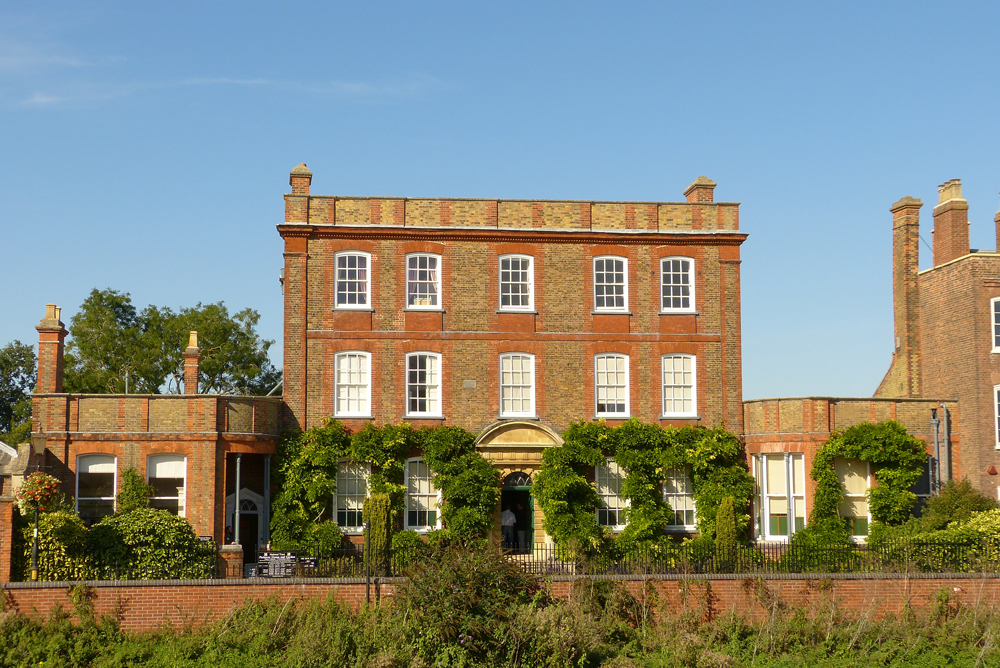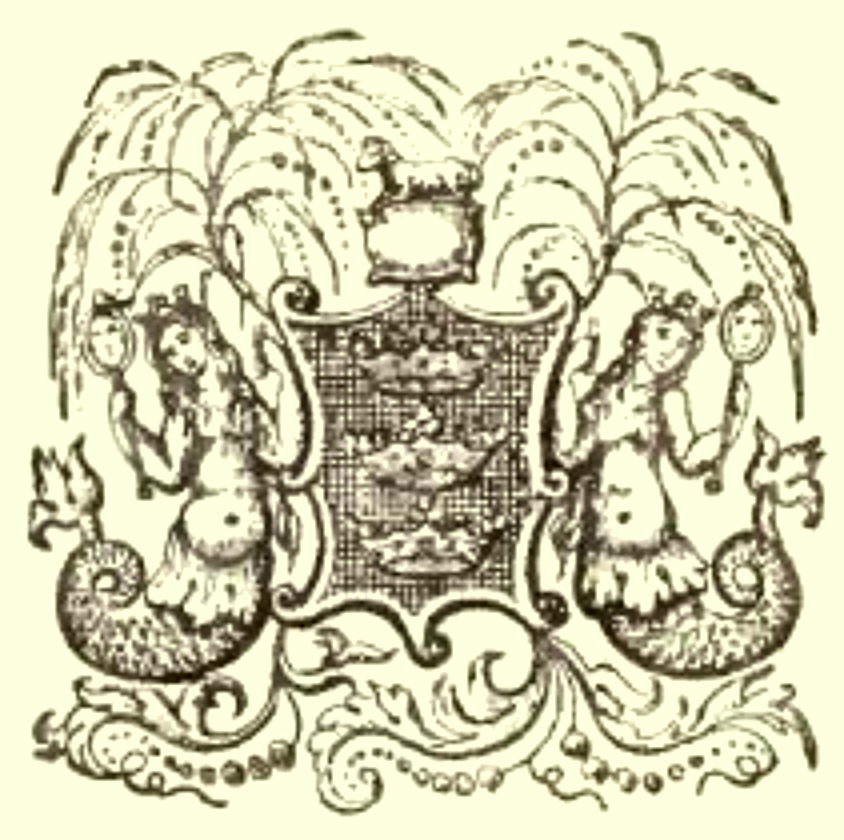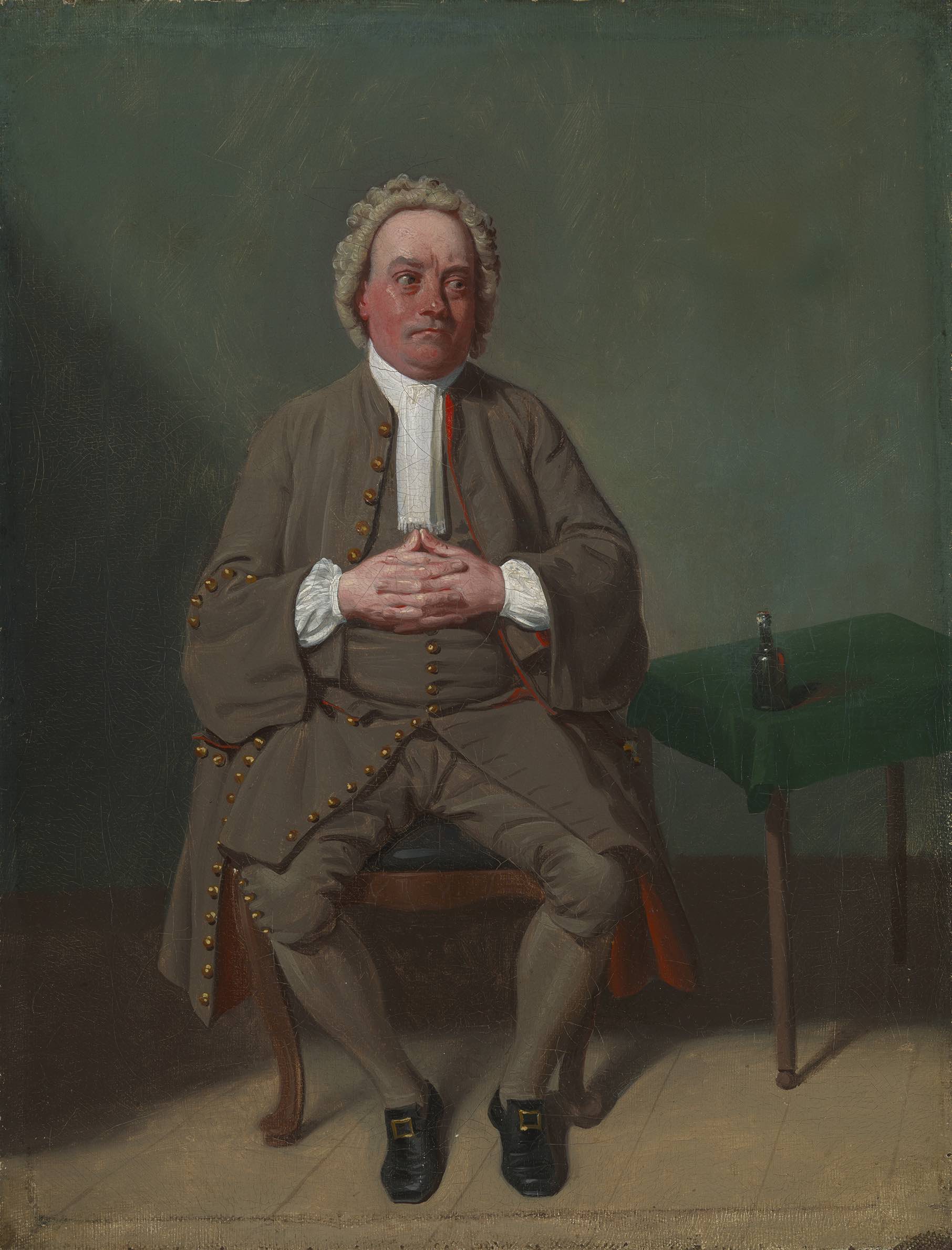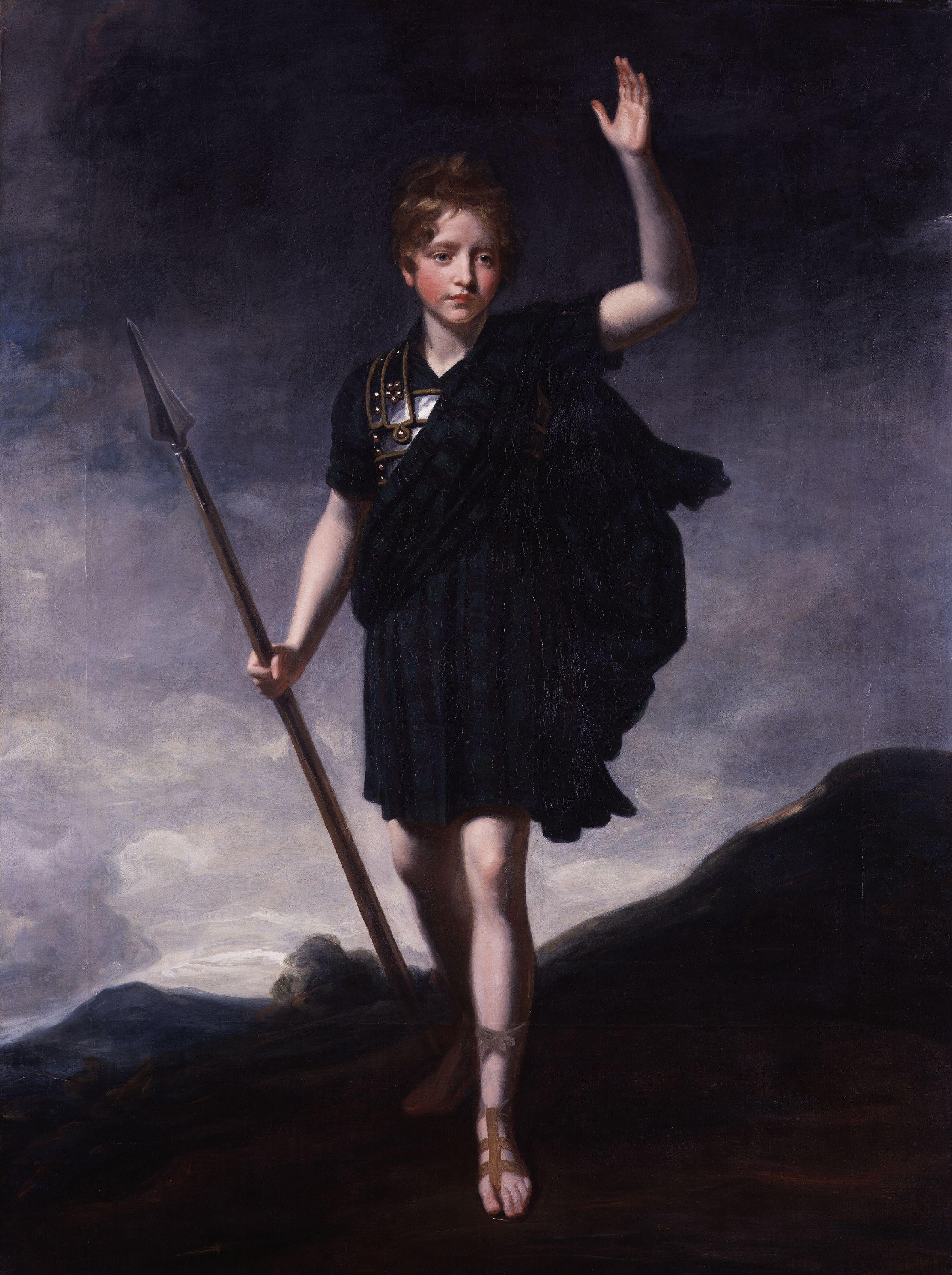|
Fanny Robertson
Fanny Robertson (1765 – 18 December 1855), born Frances Mary Ross, was an actress and later the manager of the provincial theatres of the Lincoln Circuit. Family Robertson's parents were the actors William Ross (died 1781) and his wife Elizabeth (née Mills), later Mrs John Brown (died 1823).Highfill et al.pp. 378–379 and 538/ref> Her younger sister Anna Ross married the actor-manager John Brunton. Anna and John's eldest daughter was the actress Elizabeth Yates, and John's sister Louisa Brunton, another actress, married Major-General William Craven, 1st Earl of Craven. Her half-brothers John Mills Brown, Henry Brown and half-sister Mary Clarke ( Brown) were also actors who had appeared with her on the Lincoln Circuit. She married Thomas Shaftoe Robertson, actor and manager, on 8 September 1793. They had at least three children, Richard Shaftoe (b. 1794), Thomas Shaftoe (b. 1795) and John (b. 1796). A nephew was William Shaftoe Robertson, whose most famous children ... [...More Info...] [...Related Items...] OR: [Wikipedia] [Google] [Baidu] |
Wisbech
Wisbech ( ) is a market town, inland Port of Wisbech, port and civil parish in the Fenland District, Fenland district in Cambridgeshire, England. In 2011 it had a population of 31,573. The town lies in the far north-east of Cambridgeshire, bordering Norfolk and only 5 miles (8 km) south of Lincolnshire. The tidal River Nene running through the town is spanned by two road bridges. Wisbech is in the Isle of Ely (a former administrative county) and has been described as 'the Capital of The Fens". Wisbech is noteworthy for its fine examples of Georgian architecture, particularly the parade of houses along the North Brink, which includes the National Trust property of Peckover House and Garden, Peckover House and The Crescent, Wisbech, the circus surrounding Wisbech Castle. History Etymology The place name 'Wisbech' is first attested in the ''Anglo-Saxon Chronicle'' for the year 656, where it appears as ''Wisbeach''. It is recorded in the 1086 Domesday Book as ''Wisbeach''. ... [...More Info...] [...Related Items...] OR: [Wikipedia] [Google] [Baidu] |
Boston, Lincolnshire
Boston is a market town and inland port in the borough of the same name in the county of Lincolnshire, England. Boston is north of London, north-east of Peterborough, east of Nottingham, south-east of Lincoln, south-southeast of Hull and north-west of Norwich. Boston is the administrative centre of the wider Borough of Boston local government district. The town had a population of 35,124 at the 2001 census, while the borough had a population of 66,900 at the ONS mid-2015 estimates. Boston's most notable landmark is St Botolph's Church ("The Stump"), the largest parish church in England, which is visible from miles away across the flat lands of Lincolnshire. Residents of Boston are known as Bostonians. Emigrants from Boston named several other settlements around the world after the town, most notably Boston, Massachusetts in the United States. Name The name "Boston" is said to be a contraction of "Saint Botolph's town", "stone", or "'" (Old English, Old Norse an ... [...More Info...] [...Related Items...] OR: [Wikipedia] [Google] [Baidu] |
Charles Kemble
Charles Kemble (25 November 1775 – 12 November 1854) was a Welsh-born English actor of a prominent theatre family. Life Charles Kemble was one of 13 siblings and the youngest son of English Roman Catholic theatre manager/actor Roger Kemble, and Irish-born actress Sarah Ward. He was the younger brother of, among others, John Philip Kemble, Stephen Kemble and Sarah Siddons. He was born at Brecon in South Wales. Like his brothers he was raised in his father's Catholic faith, while his sisters were raised in their mother's Protestant faith. He and John Philip were educated at Douai School. After returning to England in 1792, he obtained a job in the post office, but soon resigned to go on the stage, making his first recorded appearance at Sheffield as Orlando in '' As You Like It'' in that year. During the early part of his career as an actor he slowly gained popularity. For a considerable time he played with his brother and sister, chiefly in secondary parts, and received li ... [...More Info...] [...Related Items...] OR: [Wikipedia] [Google] [Baidu] |
Wisbech & Fenland Museum
The Wisbech & Fenland Museum, located in the town of Wisbech in the Isle of Ely, Cambridgeshire, England, is one of the oldest purpose-built museums in the United Kingdom. The museum logo is W&F. History Initially a member-based organisation the museum is now a charity (311307). The trustee since 1 April 2015 is Wisbech and Fenland Museum Trustee Company Limited (09432722) 19th century The Museum Society was founded in 1835 and was originally located in two rooms of 16 Old Market Place, a detached part of the house of George Snarey and opened in July. The collections could be seen 'from 11 to 2 o'clock every Friday'. In 1839 admission was one shilling. Wisbech Institute was permitted to bring members for a tour at 6d per member. In 1841 the curator Captain Schulz R.N. was advertising for an attendant to supervise the museum for three hours a day for a salary of £25 and a residence on the premises. In 1845 the museum building was sold and it re-located to the present purpose ... [...More Info...] [...Related Items...] OR: [Wikipedia] [Google] [Baidu] |
The Way To Keep Him
''The Way to Keep Him'' is a 1760 comedy play by the Irish writer Arthur Murphy. Originally three-acts in length, it premiered at the Drury Lane Theatre in a double bill with Murphy's ''The Desert Island''. Actor-manager David Garrick appeared in both productions.Gilman p.310-11 A great success, the following year it was extended to five acts, with music composed by Thomas Arne to accompany it. It had many revivals well into the nineteenth century. The original 1760 Drury Lane cast included Garrick as Lovemore, John Palmer as Sir Brilliant Fashion, Thomas King as William, Maria Macklin as Widow Bellmour, Mary Ann Yates as Mrs Lovemore, Mary Bradshaw as Mignionet and Kitty Clive Catherine Clive (née Raftor; 5 November 1711 – 6 December 1785) Catherine ‘Kitty’ Clive (1711-1785, active 1728-1769) was a first songster and star comedienne of British playhouse entertainment. Clive led and created new forms of English ... as Muslin. References Bibliography * Baines, ... [...More Info...] [...Related Items...] OR: [Wikipedia] [Google] [Baidu] |
The Belle's Stratagem
''The Belle's Stratagem'' is a romantic comedy of manners, the most successful work of its playwright, Hannah Cowley. It received its premiere on 22 February 1780,Winter, William. Preface to "Two Old Comedies: The Belle's Stratagem and The Wonder. Reduced and Re-arranged by Augustin Daly." pp. 11-14. Privately printed from the prompt books at Daly's Theatre, 1893. Accessed at https://books.google.com/books?id=e2CKdMWUb9wC&printsec=frontcover&source=gbs_ge_summary_r&cad=0#v=onepage&q&f=false presented by David Garrick, filling the 2,000-seat Drury Lane theatre.Swale, Jessica. "The Belle of London: Hannah Cowley." Program notes, Southwark Playhouse's 2011 production of "The Belle's Stratagem." The play became a major hit of the season, with Queen Charlotte enjoying it so much that she decreed it be performed for the royal family once a season for several years.Winter Its title comes from George Farquhar's play ''The Beaux' Stratagem''. Synopsis The play's double plotline concerns ... [...More Info...] [...Related Items...] OR: [Wikipedia] [Google] [Baidu] |
As You Like It
''As You Like It'' is a pastoral comedy by William Shakespeare believed to have been written in 1599 and first published in the First Folio in 1623. The play's first performance is uncertain, though a performance at Wilton House in 1603 has been suggested as a possibility. ''As You Like It'' follows its heroine Rosalind as she flees persecution in her uncle's court, accompanied by her cousin Celia to find safety and, eventually, love, in the Forest of Arden. In the forest, they encounter a variety of memorable characters, notably the melancholy traveller Jaques, who speaks many of Shakespeare's most famous speeches (such as "All the world's a stage", "too much of a good thing" and "A fool! A fool! I met a fool in the forest"). Jaques provides a sharp contrast to the other characters in the play, always observing and disputing the hardships of life in the country. Historically, critical response has varied, with some critics finding the play a work of great merit and some f ... [...More Info...] [...Related Items...] OR: [Wikipedia] [Google] [Baidu] |
John Quick (actor)
John Quick (1748 – 4 April 1831) was a British comic actor. Life The son of a brewer, he was born in Whitechapel, London. At age 13 he left his home and joined Oliver Carr's theatrical company at Fulham, where he played Altamont in the ''Fair Penitent'', receiving three shillings as a share in the profits. For some years, in Kent and Surrey, he played Romeo, George Barnewell, Hamlet, Jaffier, Tancred, and other tragic characters, and in 1766 was at the Haymarket Theatre under the management of Samuel Foote, with Edward Shuter, John Bannister, and John Palmer. His performance, for Shuter's benefit, of Mordecai in ''Love à la Mode'' commended him to Covent Garden, where, on 7 November 1767, he was the original Postboy in Colman's ''Oxonian in Town''; on 14 December the First Ferret in the ''Royal Merchant'', an operatic version of the ''Beggar's Bush''; and on 29 January 1768 the original Postboy in Oliver Goldsmith's ''Good-natured Man''. At Covent Garden, with occasional vi ... [...More Info...] [...Related Items...] OR: [Wikipedia] [Google] [Baidu] |
William Henry West Betty
William Henry West Betty (13 September 1791 in Shrewsbury24 August 1874 in London) was a popular child actor of the early nineteenth century, known as "the Young Roscius." Family Both of William's parents were very wealthy due to inheritance. His mother inherited money from Shropshire, and his father William Henry Betty son of Dr Betty from the north of Ireland. According to legend, Betty's father frivolously spent his money, which resulted in his losing a large portion of his inheritance. This loss might have contributed to the extreme exploitation of his child. Their son, Henry Betty, appeared in Spalding theatre for Fanny Robertson in October 1839. Career William Betty first showed his desire for the stage at the age of eleven when, in 1802, his father took the young boy to Belfast to watch Sheridan's '' Pizarro'', starring Sarah Siddons in the role of Elvira. Her performance inspired him so much that William stated, "I shall certainly die if I may not be a player." ... [...More Info...] [...Related Items...] OR: [Wikipedia] [Google] [Baidu] |
Huntingdon
Huntingdon is a market town in the Huntingdonshire district in Cambridgeshire, England. The town was given its town charter by King John in 1205. It was the county town of the historic county of Huntingdonshire. Oliver Cromwell was born there in 1599 and became one of its Members of Parliament (MP) in 1628. The former Conservative Prime Minister (1990–1997) John Major served as its MP from 1979 until his retirement in 2001. History Huntingdon was founded by the Anglo-Saxons and Danes. It is first mentioned in the Anglo-Saxon Chronicle in 921, where it appears as ''Huntandun''. It appears as ''Huntedun'' in the Domesday Book of 1086. The name means "The huntsman's hill" or possibly "Hunta's hill". Huntingdon seems to have been a staging post for Danish raids outside East Anglia until 917, when the Danes moved to Tempsford, now in Bedfordshire, before they were crushed by Edward the Elder. It prospered successively as a bridging point of the River Great Ouse, a market tow ... [...More Info...] [...Related Items...] OR: [Wikipedia] [Google] [Baidu] |
Spalding, Lincolnshire
Spalding () is a market town on the River Welland in the South Holland district of Lincolnshire, England. The town had a population of 31,588 at the 2011 census. The town is the administrative centre of the South Holland District. The town is located between the cities of Peterborough and Lincoln, as well as the towns of Bourne, March, Boston, Wisbech, Holbeach and Sleaford. The town was well known for the annual Spalding Flower Parade, held from 1959 to 2013. The parade celebrated the region's vast tulip production and the cultural links between the Fens and the landscape and people of South Holland. At one time, it attracted crowds of more than 100,000. Since 2002 the town has held an annual pumpkin festival in October. History Ancient Archaeological excavations at Wygate Park in Spalding have shown that there has been occupation in this area from at least the Roman period, when this part of Lincolnshire was used for the production of salt. It was a coastal siltland. At Wyg ... [...More Info...] [...Related Items...] OR: [Wikipedia] [Google] [Baidu] |
Oundle
Oundle () is a market town on the left bank of the River Nene in North Northamptonshire, England, which had a population of 5,735 at the time of the United Kingdom Census 2011, 2011 census. It is north of London and south-west of Peterborough. The town is home to Oundle School. History The town's name origin is uncertain. It is probably an old district name, in a grammatical form suggesting a tribal name, 'the Undalas'. Discoveries of prehistoric and Bronze Age, Iron Age and Roman materials suggest that Oundle has been a settlement location for several thousand years. Findings have included a number of Iron Age coins, and Roman bronze pins, coins and skeletons. A significant Roman find was part of a Roman cup discovered in the church yard of St. Peter's Church in the early 19th Century. Further excavation on the site led to the findings of many Roman coins, some from the time of the reign of Claudius, Emperor Claudius. The finding of red tile and building stone at a site ... [...More Info...] [...Related Items...] OR: [Wikipedia] [Google] [Baidu] |


_Henry_Wyatt_(1794–1840)_Royal_Shakespeare_Theatre.jpg)






.jpg)